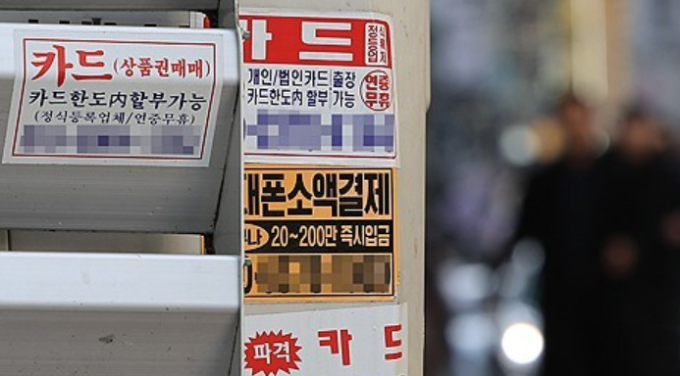
Illegal private lending and debt collection crimes in South Korea have more than doubled in the past three years. (Yonhap)
SEOUL, Sept. 5 (Korea Bizwire) — Illegal private lending and debt collection crimes in South Korea have more than doubled in the past three years, with authorities warning that exploitative lenders are increasingly preying on financially vulnerable groups such as young job seekers.
According to data released Thursday by Rep. Han Byung-do, violations of lending and debt collection laws reached 2,735 cases in 2024, up from 1,057 in 2021. The trend is accelerating: in the first six months of 2025 alone, police had already uncovered 2,588 cases, nearly matching all of last year.
Violations of the Lending Business Act surged from 675 cases in 2021 to 1,580 in 2024, and have already surpassed that figure this year, hitting 1,704 by June. Debt collection offenses also climbed from 382 to 1,055 over the same period.
Authorities said some cases involved predatory loans carrying annual interest rates as high as 2,000 to 3,000 percent, with lenders threatening to distribute manipulated nude photographs of delinquent borrowers.
“Illegal loan sharking exploits the desperation of ordinary citizens, especially young people, and represents one of the most harmful crimes to daily life,” Han said, urging the government to devise stronger, coordinated measures to curb the problem and protect victims.
In response, the Financial Supervisory Service (FSS) has stepped up prevention campaigns, targeting young people at risk of exploitation due to unstable incomes. Efforts include online quizzes on job platforms and social media, offering small prizes while educating participants about high-interest loans, investment scams and voice phishing.
The FSS also plans an on-site campaign at the Global University Culture Festival in Seoul later this month, where officials will distribute leaflets and souvenirs, and remove illegal loan advertisements.
An FSS official said the agency hopes the outreach will raise awareness among those most at risk, noting that “meeting people in familiar online and offline spaces can strengthen vigilance and help prevent victimization.”
Ashley Song (ashley@koreabizwire.com)
